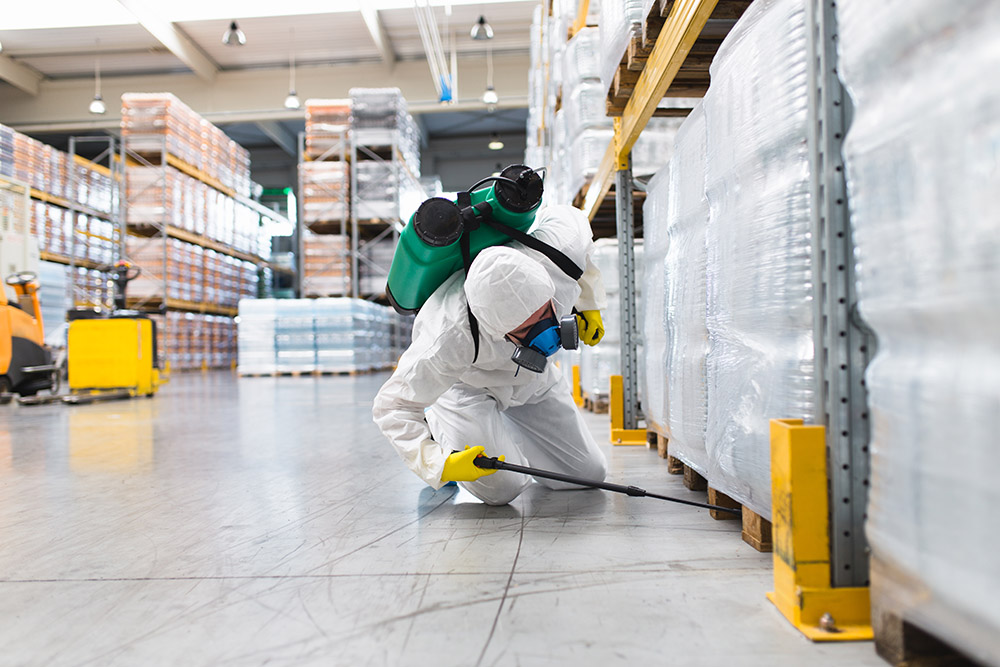Professional Pest Control Auckland: Trusted Providers for Your Comfort
Professional Pest Control Auckland: Trusted Providers for Your Comfort
Blog Article
Comprehending Different Kinds of Parasite Control Methods and Their Effectiveness
When thinking about bug control techniques, it is crucial to recognize the diverse techniques offered and their varying levels of performance. By checking out the nuances of these bug control techniques, a detailed understanding of just how to resolve bug problems can be created.
Chemical Bug Control Approaches
Chemical insect control methods play a critical duty in effectively managing and eliminating pest problems in numerous settings. These methods entail making use of chemical substances to eliminate or prevent pests such as rodents, bugs, and weeds. One of the crucial advantages of chemical bug control is its ability to supply quick and targeted remedies to pest problems. By utilizing certain chemicals that are made to target particular insects, this method can aid stop damage to crops, structures, and human health.
Nonetheless, it is vital to take into consideration the potential threats and disadvantages linked with chemical insect control techniques. Overreliance on chemicals can bring about the growth of pesticide resistance in insects, making them more challenging to manage in the future. Additionally, using specific chemicals can have harmful effects on non-target microorganisms, the atmosphere, and human wellness if not applied appropriately.
Organic Insect Control Approaches
Using all-natural killers and microorganisms to take care of parasite populaces effectively, biological parasite control approaches use a sustainable and eco-friendly approach to pest management. By presenting or promoting the task of organisms that naturally victimize or infect insects, such as ladybugs for aphid control or certain germs for caterpillar problems, organic control can aid preserve insect populations at workable levels without the requirement for artificial chemicals. This method is particularly beneficial for chemical-free farming practices, as it stays clear of making use of possibly unsafe compounds while keeping plant wellness.

Physical Bug Control Approaches
While organic parasite control approaches focus on harnessing all-natural predators and virus, physical insect control methods use physical and mechanical obstacles to manage parasite populations. These methods are frequently taken into consideration environmentally friendly as they minimize making use of chemicals. Physical insect control includes strategies such as capturing, utilizing barriers like nets or screens, and physically eliminating pests from the location.
Catches are frequently used in physical parasite control to capture Bonuses and get rid of parasites like bugs and rats. An additional physical approach is the use of obstacles such as fencings, nets, or displays to prevent bugs from entering or infesting specific locations.
All-natural Insect Control Techniques
Integrating natural predators and plant-based repellents is a crucial technique in implementing efficient natural insect control approaches. By encouraging the existence of advantageous pests like ladybugs, lacewings, or aggressive termites, garden enthusiasts can normally control pest populations. These killers feed on common garden pests such as caterpillars, aphids, and termites, helping to preserve a balanced ecosystem without the demand for chemical interventions.

Additionally, carrying out social techniques such as plant rotation, friend growing, and preserving proper plant wellness can likewise enhance the effectiveness of natural insect control methods. These strategies not only aid in protecting against parasite problems yet likewise advertise biodiversity and overall community strength. By integrating these natural strategies, individuals can effectively manage pests while decreasing ecological impact.
Integrated Pest Management (IPM) Technique
Carrying Out an Integrated Parasite Monitoring (IPM) approach is necessary for properly controlling insect populations while minimizing reliance on chemical pesticides. IPM is a lasting and extensive approach that integrates numerous parasite control techniques to attain long-lasting options. This method concentrates on avoidance, tracking, and control to attend to insect issues in an ecologically friendly way.
IPM incorporates biological, social, physical, and mechanical strategies with the calculated and limited use pesticides when essential. By emphasizing positive measures such as habitat adjustment, biological control, and exemption, IPM aims to minimize parasite populaces and their effect on the community. Normal monitoring is critical in IPM to analyze pest degrees properly and determine the most ideal control methods.
Among the vital he said benefits of IPM is its capability to decrease the dangers connected with excessive chemical use, such as environmental contamination and harm to non-target microorganisms. Additionally, IPM advertises a more holistic method to pest management by considering the total community dynamics. Generally, the IPM approach provides a efficient and sustainable service for parasite control while advertising environmental duty.
Conclusion
In final thought, understanding the different types of pest control approaches and their performance is crucial in properly managing bug problems. Chemical, biological, physical, and natural parasite control techniques each have their very own advantages and constraints. Integrated Pest Administration (IPM) strategy, which combines various approaches for lasting bug control, is increasingly being identified as a ecologically pleasant and holistic service. By using a combination of these approaches, individuals and companies can successfully manage pests while minimizing harm to the atmosphere.
Chemical pest control techniques play a crucial duty in successfully taking care of and removing pest go to this web-site problems in various environments.Using natural predators and pathogens to take care of pest populations properly, organic pest control techniques offer a lasting and environment-friendly approach to pest management. By advertising the activity or presenting of microorganisms that naturally prey on or contaminate pests, such as ladybugs for aphid control or specific bacteria for caterpillar invasions, organic control can assist preserve bug populations at workable degrees without the need for synthetic chemicals.While organic parasite control techniques concentrate on harnessing all-natural killers and virus, physical bug control methods make use of physical and mechanical obstacles to handle parasite populaces. Integrated Parasite Administration (IPM) approach, which incorporates different techniques for lasting insect control, is progressively being identified as a alternative and eco friendly solution.
Report this page